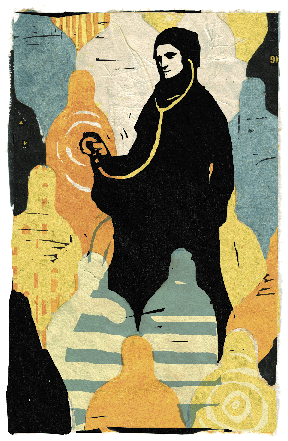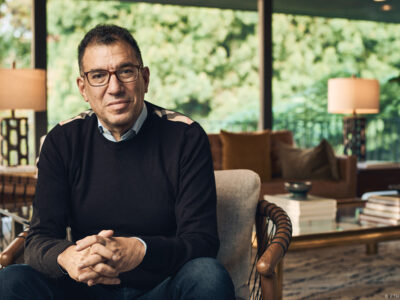
Iraqi visitors | “In our country, there’s only one thermometer in the wards—and it’s not with the nurses but with a physician,” Intisar Abdul-Hussein Abbas was saying. A dearth of medical supplies is just one challenge Iraq’s nurses face as their country rebuilds its healthcare system. According to Abbas, an Iraqi assistant minister of health who visited Penn’s School of Nursing in August, they also need improvements in nursing education; training in nursing specialties ranging from open-heart surgery to oncology; a licensing board; a fair pay-scale; research support; and more respect for the profession.
Her visit—along with that of Amean A. Yasir Al-Yassiri, chief of the Baghdad hospital—was arranged by the U.S. Office of the Surgeon General. “Penn is the first university in America to get health professionals from Iraq into America and start a dialogue,” according to Frederick Gerber, special assistant to the surgeon general.
Operation Open Hands, as Gerber calls it, took a year of planning due to leadership changes in the Iraqi Ministry of Health and the logistics of arranging the nurses’ safe travel out of Iraq. “There were a few glitches along the way, but they’re here and we’re hoping next year we’ll have other nurses here [in the United States] to study.”
Abbas, who is also the World Health Organization chief in Iraq, and Al-Yassiri, who is in charge of rebuilding the Baghdad hospital, spent a week at Penn’s nursing school, getting ideas on everything from education to hospital design.
In contrast to the United States, almost three-quarters of nurses in Iraq are men and men also dominate management positions in the profession, they said. On the other hand, male nurses aren’t allowed to work in certain parts of some hospitals, including the gynecology wards.
Some of Iraq’s healthcare challenges transcend cultural boundaries. For instance, despite the variety of foods typically available in Iraq, “The people don’t know how to eat” nutritiously, Abbas insisted. “Iraqis want to eat nice-tasting food—not for the benefit of it. With spinach, the first procedure is they cook on the fire [until] the color becomes black. Then with the onion. Then with the meats … ”—S.F.




